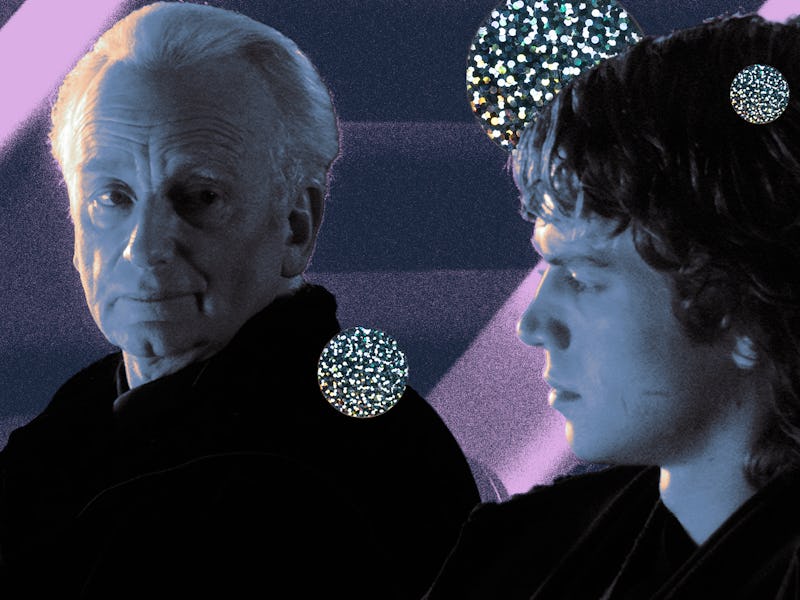One Prequel Scene Proves Star Wars Should Embrace Campy Space Opera
A story everyone but the Jedi knows.

“Have you ever heard the story of Darth Plagueis the Wise?”
They’re words Star Wars fans have memorized, often seen in comment sections and in countless parodies and memes. At the end of the first act of Revenge of the Sith, the action that would end the prequel trilogy grinds to a stop and strips the core conflict — Anakin’s impending turn to the Dark Side — down to its bare elements. It may seem goofy out of context, but this iconic exchange is one of the most important scenes in all of Star Wars.
The end of the first hour of Revenge of the Sith is full of tense conversations in buildings: Anakin and Obi-Wan, Anakin and Yoda, Anakin and Padmé, the entire Jedi council. While each scene serves a purpose, it becomes clear that we’ve got a long time to wait before we see some action.
The Mon Calamari Ballet’s performance of “Squid Lake” is the backdrop for Palpatine’s speech.
Then we cut to the who’s who of Coruscant filing into the Galaxies Opera House. During a performance of The Mon Calamari Ballet’s “Squid Lake,” Palpatine tells Anakin that the Jedi and Sith both strive for more power, but that the Sith at least offer him the chance to save Padmé from the death he keeps seeing in visions.
It’s a scene that feels pulled from a spy movie: the careful deliberation and long pauses, lines delivered without eye contact, the subtle verbal manipulation. In fact, Quantum of Solace would do a similar “secret meeting during the opera” scene a few years later.
Sith’s scene was almost far less memorable. While speaking at Star Wars Celebration 2017, Palpatine actor Ian McDiarmid said the decision to use a lavish opera didn’t come until late in the process.
“George [Lucas] will remember that he wrote that scene originally in another office [set]… and then he said, ‘No, I think we should go somewhere else for a change,’” he said. “So we went to a theater and the reason I liked that so much is because I’m a theater actor too, but more than that Hayden and I could really sit down and from my point of view anyway, have an evil chat.”
Ian McDiarmid delivers a showstopping performance in one of Sith’s most derided scenes.
Despite the moment’s future transition to memehood, McDiarmid’s performance is powerful. And as one of the few instances of in-universe theater, it’s fitting that it’s where we see one of the best acting jobs in the entire saga. Without the burden of being Chancellor to the Senate or Sith Lord to his secret allies, he is finally just Palpatine, one man describing his ideology to another.
There’s a grim irony to the tale he spins. Palpatine knows that just as he killed his master, Darth Plagueis, Anakin will likely do the same to him. But that’s something a Sith accepts when he chooses to take on a pupil, because all that matters are two people striving for as much power as they can in an unpredictable galaxy.